According to latest Chainalysis crypto crime report, criminals are becoming crypto whales, currently holding over $25 billion in cryptocurrency. That represent around 3.7% of all crypto whales, those that hold more than $1 million in cryptocurrencies.
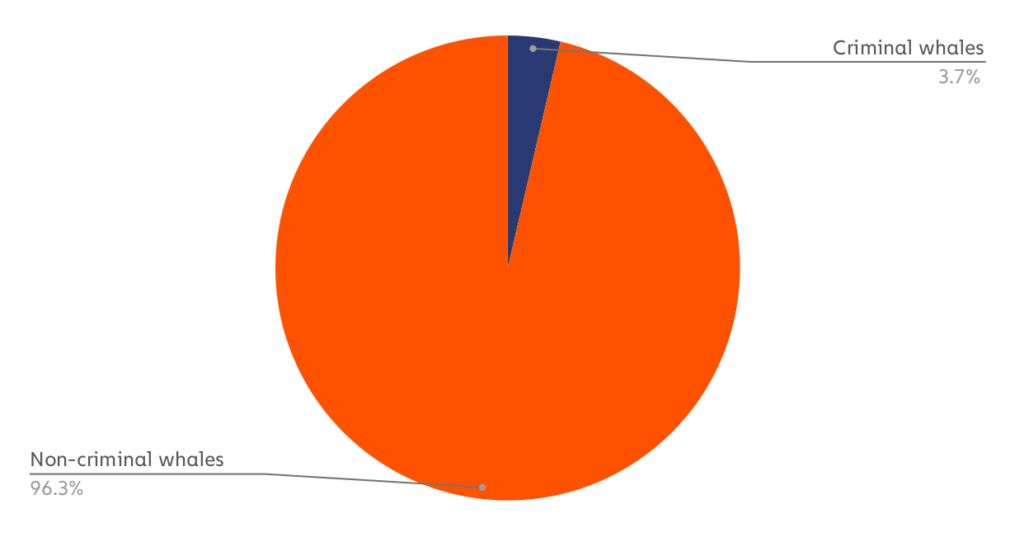
The report said: "Whereas stolen funds dominate overall criminal balances, darknet markets are the biggest source of illicit funds sent to criminal whales, followed by scams second and stolen funds third."
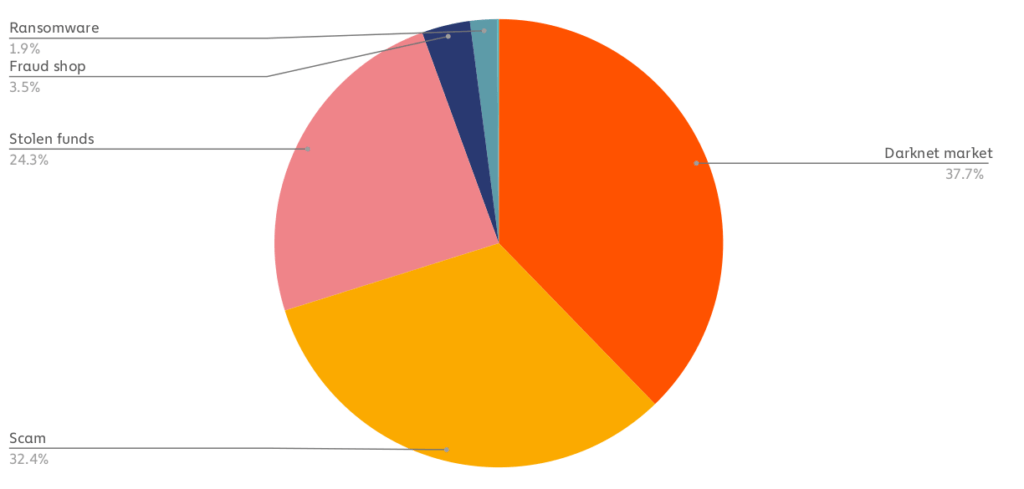
Chainalysis identified just over $602 million worth of ransomware payments in 2021, which represent huge role in crypto crime.
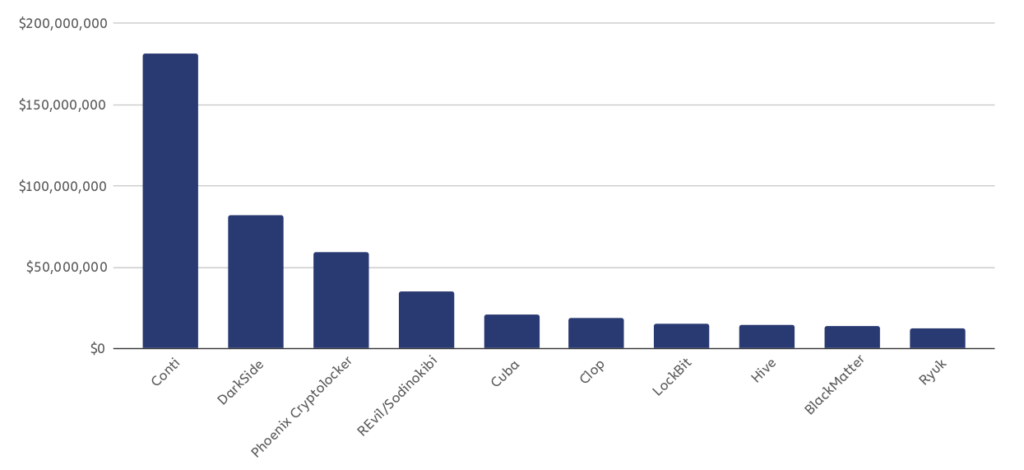
Conti was the biggest ransomware strain by revenue in 2021, extorting at least $180 million from victims.
Believed to be based in Russia, Conti operates using the ransomware-as-a-service (RaaS) model, meaning Conti’s operators allow affiliates to launch attacks using its ransomware program in exchange for a fee.
The report said: "Malware refers to malicious software that carries out harmful activity on a victim’s
device, usually without their knowledge. Malware-powered crime can be as simple as stealing information or money from victims, but can also be much more complex and grand in scale. For instance, malware operators who have infected enough devices can use those devices as a botnet, having them work in concert to carry out distributed denial-of-service (DDOS) attacks, commit ad fraud, or send spam emails to spread the malware further."
Sample of malware strains by number of cryptocurrency transfers from victims | 2021
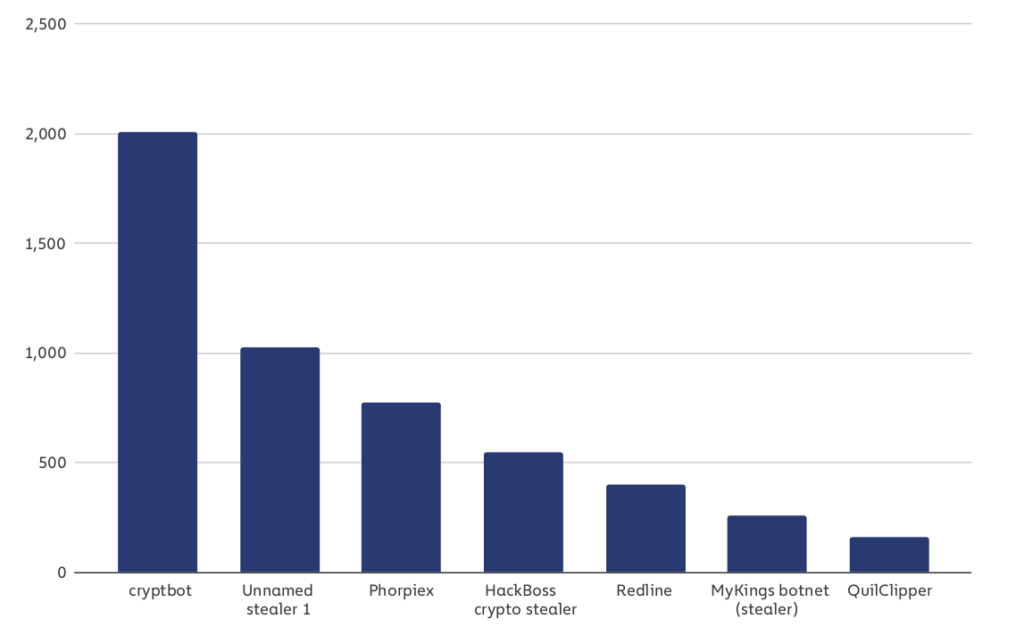
Report says: "2021 was a big year for digital thieves. Throughout the year, $3.2 billion in cryptocurrency
was stolen from individuals and services — almost 6x the amount stolen in 2020."
Total value stolen by type of attack | 2019–2021
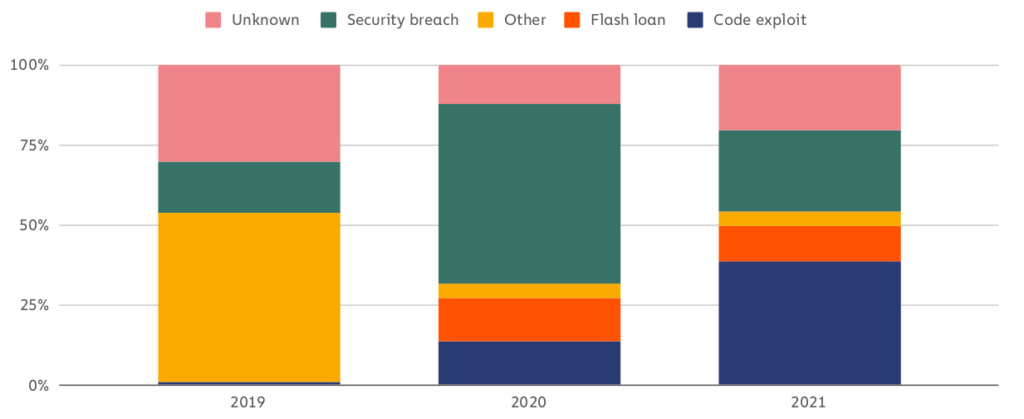
Rug pulls have emerged as the go-to scam of the DeFi ecosystem, accounting for 37% of all cryptocurrency scam revenue in 2021, versus just 1% in 2020.
All in all, rug pulls took in more than $2.8 billion worth of cryptocurrency from victims in 2021.
Top 15 rug pulls by cryptocurrency value stolen | 2021
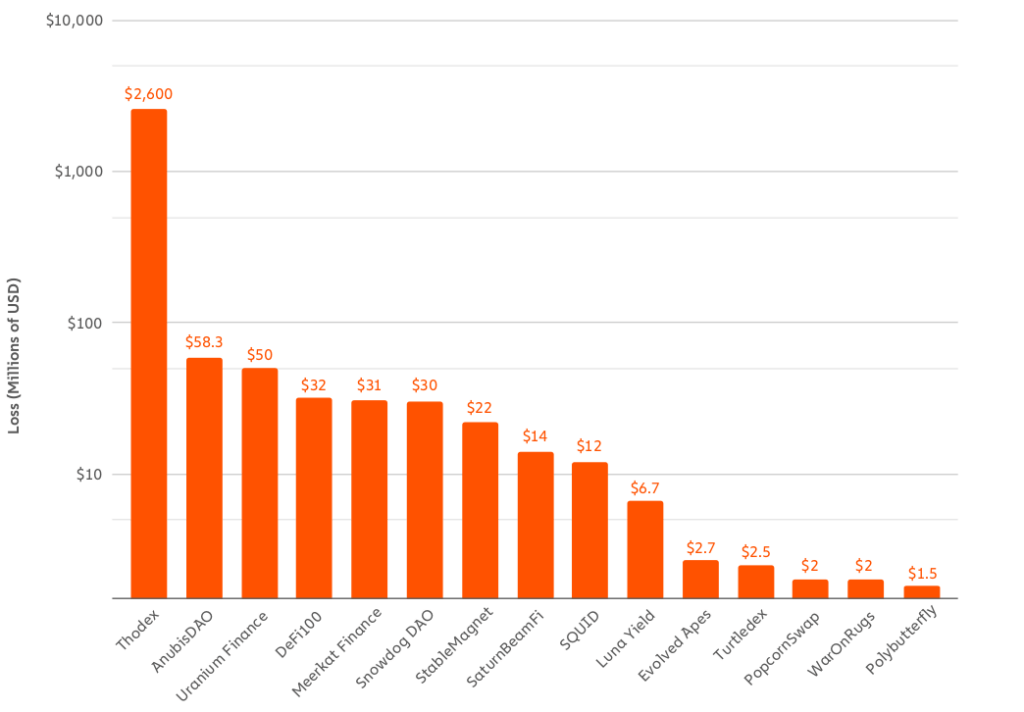
Always be cautious while opening attachments or links, never share sensitive information, back up your files, use antivirus and follow our blog for more security knowledge.